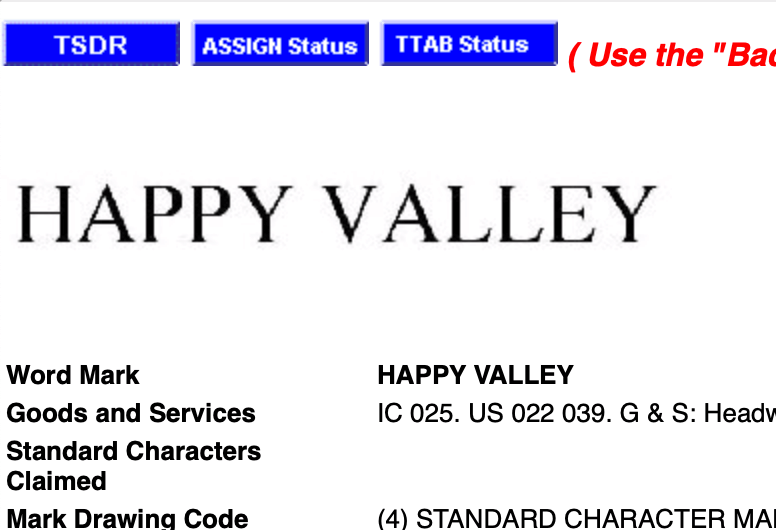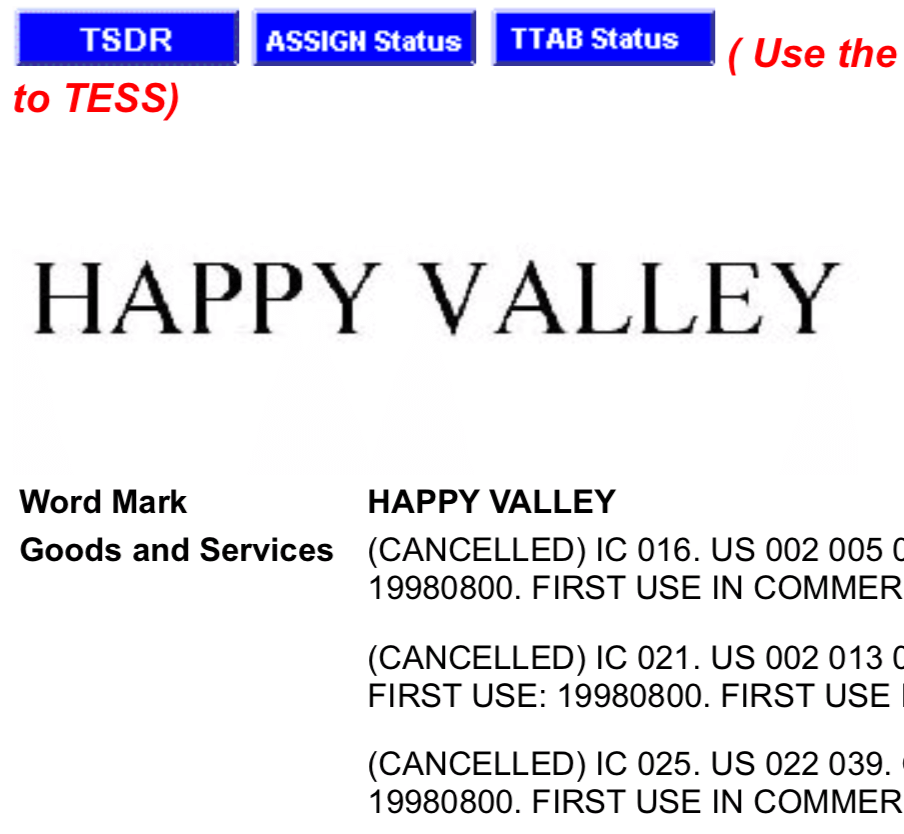Penn State’s HAPPY VALLEY Trademark Should Be Denied
The Pennsylvania State University filed Trademark Application 88216706 on December 4, 2018, to register HAPPY VALLEY for use on headwear, shirts, and sweatshirts. The United States Patent and Trademark Office (USPTO) has accepted the application, but it still needs to be examined by an attorney.
Although Penn State will likely get the trademark registration for HAPPY VALLEY, I believe it will be rejected for being geographically descriptive. Penn State will overcome the rejection by amending the mark to the Supplemental Trademark Register, which carries with it very little weight in court proceedings. Below are the top 3 reasons why Penn State can’t (…shouldn’t be able to…) trademark the HAPPY VALLEY name.

“Happy Valley” is a nickname for the State College borough and the townships of College, Harris, Patton, and Ferguson, in Centre County, PA. The term was coined during the Great Depression of the 1930’s after this specific region was not hit hard financially due to the presence of the University. Since then, “Happy Valley” has dominated Central Pennsylvania culture with festivals, football games, and student activities.

Prior to the University’s trademark application, HAPPY VALLEY was registered as a trademark back in 2011 by Nittany Embroidery & Digitizing, Inc. However, the registration was cancelled on December 14, 2018. The Trademark Office records indicate that Nittany Embroidery failed to file the required Section 8 Declaration of Continued Use, resulting in the lapse of the trademark.
Anxiously waiting and anticipating the lapse… Penn State University “pounced” and filed for the trademark presumably in hopes of adding HAPPY VALLEY to its repertoire of collegiate licensing assets. Already, a large portion of the University’s revenue stems from its branding efforts, evident in this recent report detailing the Top Penn State sports by revenue. Penn State Football alone generated $81,232,076 in 2017. This includes ticket sales, concession and merchandise/novelty sales, conference distributions and media rights, among other things.
Reason 1: Other Merchants Who Used the Trademark First Can Challenge Penn State’s Trademark Application
In trademark law, priority of use wins. Trademark Law asks: Who was first to use the mark without abandoning it? That is, who was first to continuously use the HAPPY VALLEY trademark for apparel? A simple google search shows a significant number of prior users – merchants who sell HAPPY VALLEY in the apparel category. Arguably, each prior user of HAPPY VALLEY can challenge Penn State’s trademark application before the TTAB or a federal Court. There are weaknesses for the prior users. These prior-user-merchants do not use HAPPY VALLEY in a branding sense. Rather, the merchants use HAPPY VALLEY as ornamentation on the apparel. (For example, HAPPY VALLEY is simply emblazoned across the front of the shirt.) Ornamentation is not enough to acquire prior common law trademark rights. The prior use must be a genuine use that identifies HAPPY VALLEY as an apparel brand. (Sewn in labels and hang tags are the best evidence of source identifying use for apparel.)
Reason 2: HAPPY VALLEY Is a Geographically Descriptive Name That Can’t Be Trademarked
Trademark law denies exclusive rights to names that identify a particular location. Primarily Descriptive names are to be rejected per Trademark Office Procedure.
Quoting the exact words of the Trademark Office: “HAPPY VALLEY” is a well-known nickname for State College, Pennsylvania as well as the surrounding immediate area. As such, Penn State’s trademark application for HAPPY VALLEY should be rejected on this basis. Alternately, third parties can contest Penn State’s trademark application on descriptive grounds by petitioning the TTAB or a federal Court.
Advocating the opposite position, there are ways Penn State can overcome the geographically descriptive rejection. One includes amending the application to the Supplemental Trademark Register. In fact, that’s what Nittany Embroidery did to get the trademark application allowed back in 2012. The downside to the Supplemental Trademark is that it has much less weight regarding enforcement of the trademark. It’s effectively a placeholder in the Trademark Office records, and carries little to no weight in court.
Alternately, Penn State may argue that the mark should be registered on the Principal Register (under Section 2(f)) based on Penn State’s claimed prior use (back to 2013) of the HAPPY VALLEY trademark for apparel items. This should be tough for Penn State: A Section 2(f) claim requires a verified statement that Penn State’s use of HAPPY VALLEY has been substantially exclusive and continuous for the past 5 years. I don’t think the evidence supports such a statement. Just google HAPPY VALLEY shirts. You will find plenty of other sellers.
Reason 3: HAPPY VALLEY Cannot Function as a Trademark
The Third Reason, and probably the weakest argument, why Penn State Can’t trademark HAPPY VALLEY is “failure to function”.
If the proposed trademark is so widely used that it can’t identify a single business as the owner, it should be rejected for failure to function as a trademark.
Some names include political, social, religious, or similar messages that are in widespread use or widely understood. In this category are messages that become Pop Culture – widely used after a recent newsworthy event or occurrence. The name is then spread through print and television media coverage, and social media appearances such that it’s publically known as relating to the original event or location. PHILLY SPECIAL trademark is an example.
The function of a trademark is to indicate a single source of goods or services. These “viral” pop-culture names generally are not attributed to a single brand. Thus, they fail to function as a trademark.
